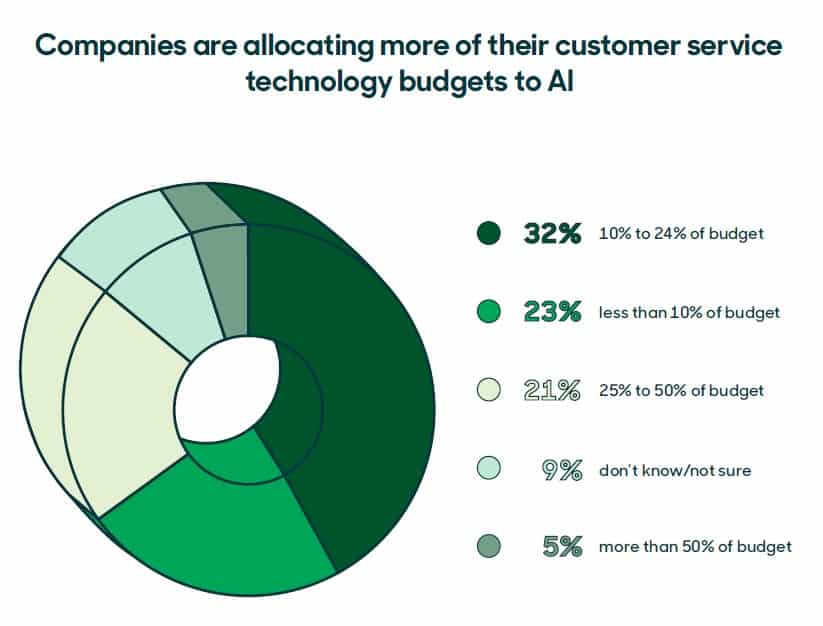The Zendesk CX Accelerator report revealed that Singaporean businesses are struggling to deliver on their exceptional customer experience (CX) aspirations. The report noted that just seven per cent of Singapore businesses are qualified as ‘CX Champions’ – those considered the highest standard-bearers. As of the report, Singapore ranked 10th across the 13 global markets surveyed.
Singapore is not alone
Other organisations in APAC join their peers in Singapore in less-than-stellar accomplishments when it comes to meeting rising expectations. Only 19% of Singapore businesses scored ‘very good’ on their ability to act on customer feedback, beating Japan (12%) but lagging behind South Korea (21%), Australia (31%) and India (58%).
Only 22% of Singapore businesses are quick on turning feedback into change – a sign that APAC organisations are too slow at addressing customer feedback. This is on par with their South Korean counterparts at 22% but ahead of Japan (12%), but behind Australia (31%) and India (58%).
Consistent goals to benchmark against
The report noted that irrespective of where a business is in its evolution – from startup to established brands – the changes needed to stay on top are consistent:
- Balance human and automation strategy
- Integrate key data from critical apps
- Evolve the role of CX
"In an increasingly tough economy, businesses have a challenge on their hands to stay agile and keep things running efficiently while meeting customers' demands in order to keep them coming back," said Jeff Titterton, chief operations officer at Zendesk.
The data reveals that success is dependent on engaging customers in relationship-driven conversations and investing in technology that enables teams to deliver exceptional service, and ensuring all is integrated across the business.

Wendy Johnstone, chief operating officer, APAC, Zendesk, added that during times of economic uncertainty, nothing becomes more important than the retention of existing customers.
"More than ever, APAC organisations are recognising the importance of increasing customer loyalty through delivering exceptional customer service.”
Wendy Johnstone
Agents + AI = a winning combination

Customers are clear they want more control over how they engage with businesses, and organisations have a huge opportunity to invest in AI-driven solutions to empower their customers with quick resolutions. When compared to Starters, 44% more APAC Champions use a mix of chatbots and human representation when it comes to customer service channels.
According to the report:
- APAC Champions report chatbots resolving 1.8 times more inquiries without human involvement than Starters
- Among companies that use chatbots, APAC Champions are 45% more likely than Starters to cite its pre-configured logic and parameters, successfully helping customers to reach the right channel for their specific issue
- 1.5 times more APAC Champions than Starters report being able to message asynchronously with users
- APAC Champions are 64% more likely than Starters to be effective at keeping their online help centre up to date
Where businesses need to focus is on how they balance automation and the human element of the customer experience. This requires a deeper understanding of customer behaviours to place automation where it is most effective and provide agent support where it can have the greatest impact.
Mind the (data) gap
The data deluge is overwhelming business leaders, and they are still lacking meaningful insights into how to drive better, more personalised experiences for customers. About 47% of Singaporean companies surveyed use between six and 15 apps to get a full view of the customer journey, with only one-quarter saying that they are “very strong” in delivering personalised experiences.
While many understand the need for integration, breaking down the silos continues to pose a challenge, even for APAC Champions who are 8.3 times more likely than Starters to use upwards of 16 apps. In fact, APAC Champions are 11.7 times more likely to report data fragmentation as a serious obstacle to delivering more seamless customer support.
Providing agents with the right information at the right time can help support teams better anticipate customer needs. Customer feedback can also help other teams act quickly to improve product or service offerings.
Better collaboration between sales and support teams can optimise customer engagement across all touchpoints, reduce churn, and build stronger relationships.
Evolving CX’s role
According to the report, rethinking the role of support teams requires investing in training and tools to ensure agents have what they need to uncover leads and close deals. In turn, businesses will reap the benefits.
She concluded that it was for this reason that investing in CX will continue to be a critical driver of growth and success for organisations in the future.
The data proves this: 79% more APAC Champions than Starters are well-trained to look for sales opportunities during customer interactions. In fact, APAC Champions are 2.1 times more likely to have their CX engagements uncover new sales opportunities. However, as customer expectations rise, so does the pressure to continue to differentiate a product or service.

Titterton says the biggest changes businesses face to keep up with - let alone get ahead of - customers’ expectations are both operational and cultural.
“The role of CX cannot be understated, and business leaders still need to not only prioritise their investments but make them work well for their teams. We understand how daunting this can be, but the data underscores just how significant the opportunity is when you get it right."
Jeff Titterton
As consumers keep raising the expectation bar, the way forward is to ensure businesses have the right knowledge, skills, and technology to meet them.




